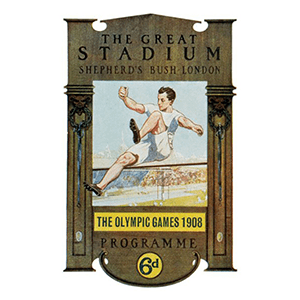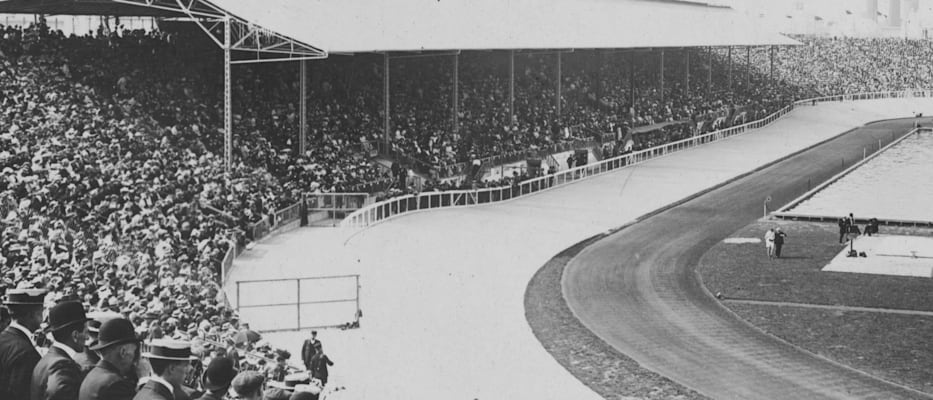The 1908 Olympic Games were originally awarded to Rome, but were reassigned to London when it became apparent that Rome would not be ready. Despite the short notice, the Games were exceptionally well organised. For the first time, a stadium was specially prepared for the Games, and swimming events did not take place in the open water.
When Dorando Pietri of Italy entered the stadium at the end of the marathon, it was immediately apparent that something was wrong. Dazed, he headed in the wrong direction and then collapsed. The officials helped him to reach the finish line in first place and so he was disqualified for receiving outside aid, but his courage earned him immortality.
Sportsmanship existed at a level unimaginable in today’s more-competitive world. One wonderful example took place when the middleweight Greco-Roman wrestling final between Frithiof Martensson and Mauritz Andersson was postponed by one day to allow Martensson to recover from a minor injury. Martensson duly recovered and won.
NOCs: 22
Athletes: 2,008 (37 women, 1,971 men)
Events: 110
Volunteers: N/A
Media: N/A
The Creation of Sports Facilities
For the first time, a stadium was specially fitted out for the Games, and swimming did not take place in the open water as a pool was specially built. For diving, there was a special folding tower.
The Games Attract Athletes
The Games started to be known throughout the world and athletes from everywhere wanted to take part.
The Official Distance of the Marathon
The most memorable event of the 1908 Games was the marathon. The Games Organising Committee fixed the distance of the marathon at 42km and 195m, the last 195 metres being added on to justify the route from Windsor Castle to the royal box in the London stadium. This distance became official from the 1924 Games onwards.
Appearance of a Relay
The athletics events included for the first time, a relay, called "the Olympic relay". The athletes ran 200m, 200m, 400m and 800m.
The Parade of the Delegations
Also for the first time, the competitors paraded behind their country's flag in sportswear.
Union of Two Countries Under One Name
Australia and New Zealand were represented by a single delegation, under the name of Australasia.
The Important Thing
Inspired the words of the Bishop of Pennsylvania, Ethelbert Talbot, Pierre de Coubertin adopted them in a modified form to become the creed of the Olympic Movement: "The important thing in life is not the triumph, but the fight; the essential thing is not to have won, but to have fought well".
Ceremonies
London 13 July 1908. The British delegation.
Official Opening of the Games by:
His Majesty The King Edward VII
Lighting the Olympic Flame by:
A symbolic fire at an Olympic Summer Games was first lit in 1928 in Amsterdam.
Olympic Oath by:
The athletes’ oath was first sworn at the 1920 Olympic Games in Antwerp.
Official Oath by:
The officials' oath at an Olympic Summer Games was first sworn in 1972 in Munich.


